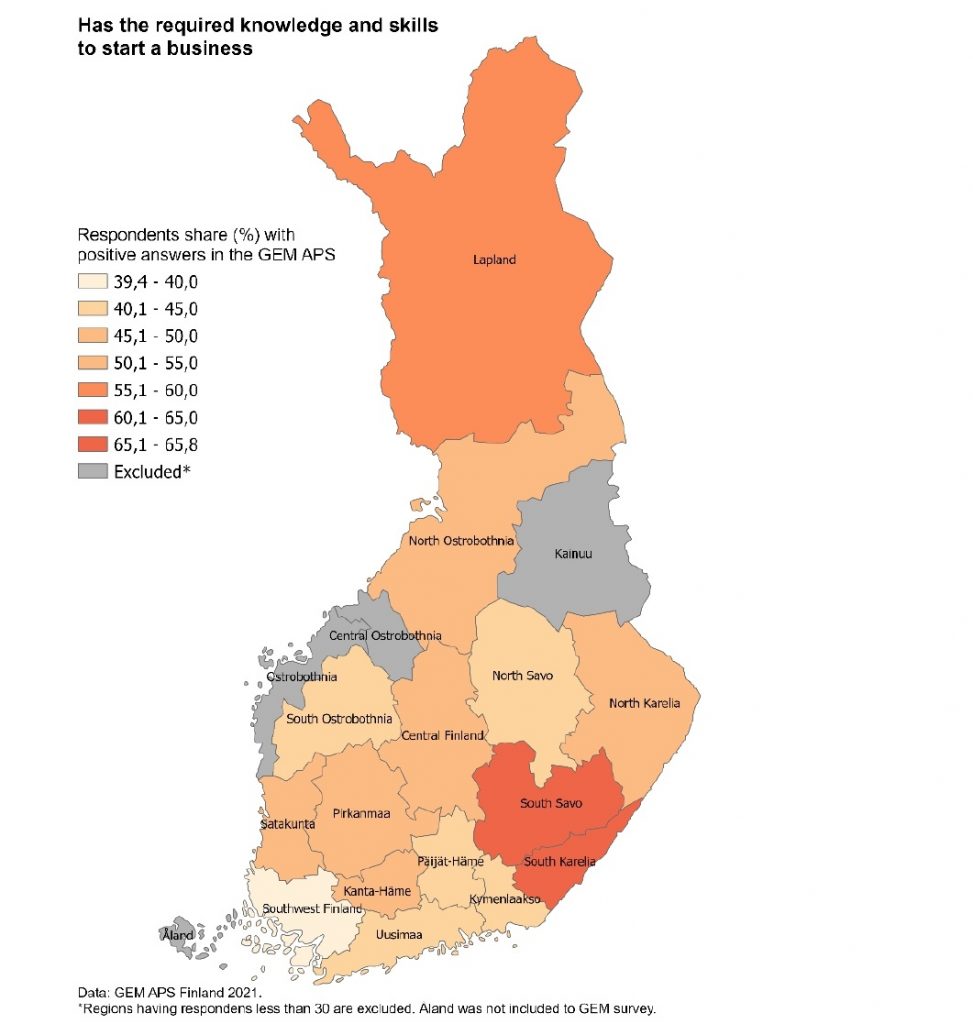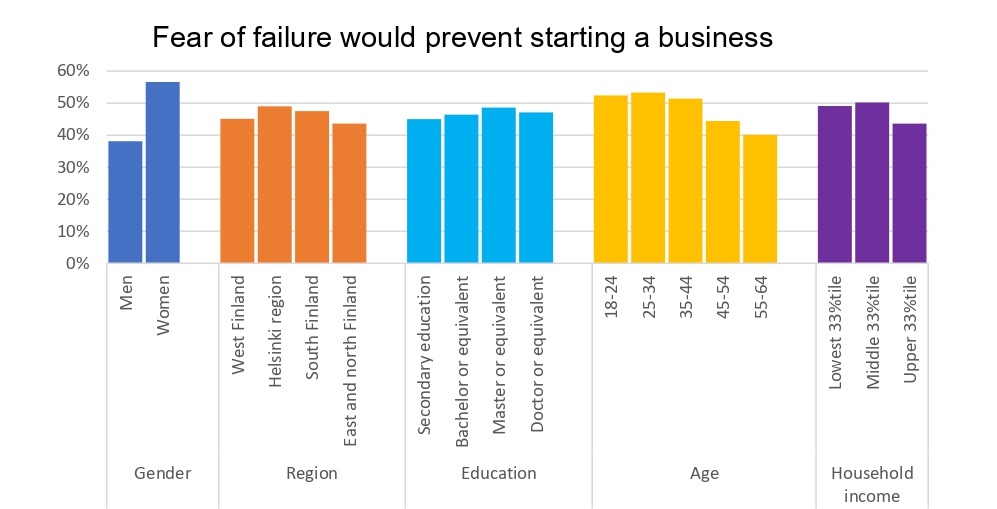The fear of failure prevents women from becoming entrepreneurs.
The Ministry of Economic Affairs and Employment – in its Finland’s vision for 2030 – stresses the importance of entrepreneurship. The proposal envisions Finland as a society with strong and growth-oriented entrepreneurial and start-up culture, where the occupation is highly valued. The government’s primary task is described as “to ensure a safe and market-based foundation for all entrepreneurs”. (Sipilä et al. 2021, 12–14.)
So, what is current status of entrepreneurship in the country? According to Statistic of Finland, in March 2023 the number of registered new enterprises in Finland was 13,954. Compared to the corresponding period of the year before, the number of registrations went up by 4%. Of the registered enterprises 5,237 were limited companies and 8,577 were natural persons.
However, despite the fact that the number of entrepreneurs has increased, the striking data is that only 20% of them are women. One of the possible reason for that emerges in the last GEM report (Global Entrepreneurship Monitor) about Finnish entrepreneurship.
2,000 Finns were interviewed regarding entrepreneurship themes. Finland has the 16th best entrepreneurship conditions for women at global level, but the fear of failure prevents women from becoming entrepreneurs. 53% of men, but only 32% of women think that they have the required knowledge and skills to start a new business.
The figure below shows these differences at regional (NUTS3) level. In South Karelia and South Savo more than 60% of adults think they have the required skills and knowledge to start a business, whereas in Southwest Finland and Päijät-Häme only about 40% of adults thought this. Fear of failure is high in South Ostrobothnia (55%) and North Savo (61%). Regions with fewer than 30 respondents were excluded from the map.
Figure 1. – Differences in skills and knowledge to start a business at regional level in Finland
The background variables for Finland show a significant gender gap: the fear diminished slightly with greater age, but region, education, and household income had little impact on the fear of failure as the table below shows.
Figure 2. Fear of failure would prevent starting a business in different respondents groups
According to the same study, female entrepreneurs have smaller networks than male entrepreneurs do, leaving women at a disadvantage. Hence, the importance of providing opportunities to form relationships and network is of pivotal importance.
A study carried out by Nordic Innovation and the Nordic working group as part of the Nordic Female Entrepreneurship initiative, running from 2018 -2021, has highlighted other important measures to support women entrepreneurs. Among them the needs to establish female mentoring schemes and networks, to increase female entrepreneurs’ access to capital and to remove competitive disadvantages in industries where women often operate as entrepreneurs.
“Despite the fact that the number of entrepreneurs has increased, the striking data is that only 20% of them are women.”
As a researcher on food entrepreneurship, for me a central question is: how can academia produce and support women entrepreneurs? Are mentoring and extensive outreach enough? If more university-based programs could follow steps to support women entrepreneurs, would gender disparities in Finnish (and global) entrepreneurism be better address?
To this regard, Ruralia Institute has recently taken a responsibility. Starting from January 2024 it will be the academic institution leading the GENGREEN project, a pioneering initiative involving 9 organizations from Finland, Sweden and Norway and financed by Interreg Aurora programme.
Aim of the project will be to develop a cross-border program for green entrepreneurial training directed to women at different stages in their entrepreneurial path.
The project will represent a testfield for Ruralia’s third mission and will reinforce the university’s constant effort to promote more linkages with society.
Silvia Gaiani is a senior researcher at Ruralia Institute where she leads a long term research on The role of food innovation and entrepreneurship in transition to sustainability. She is also involved in EU, national and regional projects on sustainable food systems.


